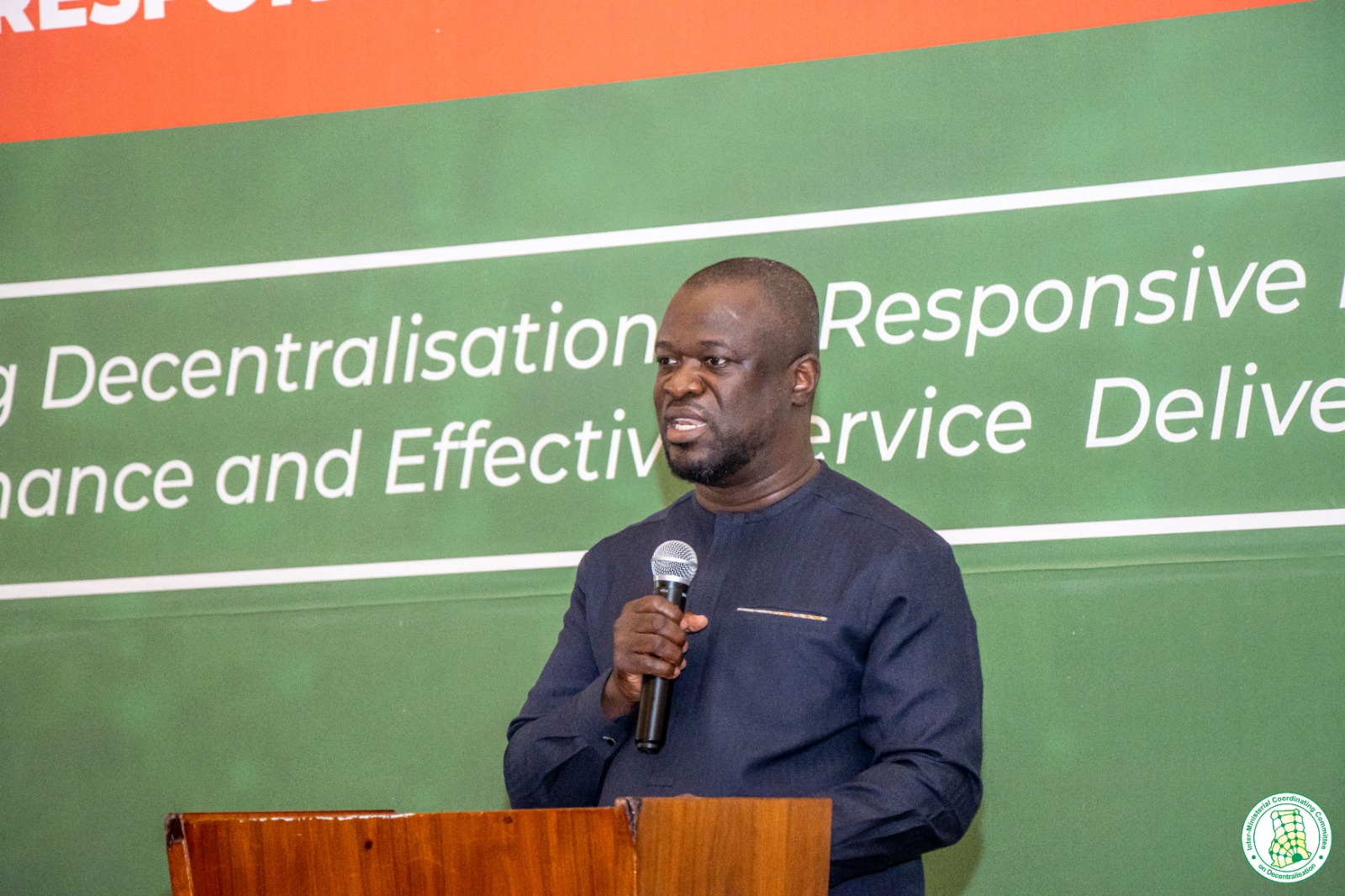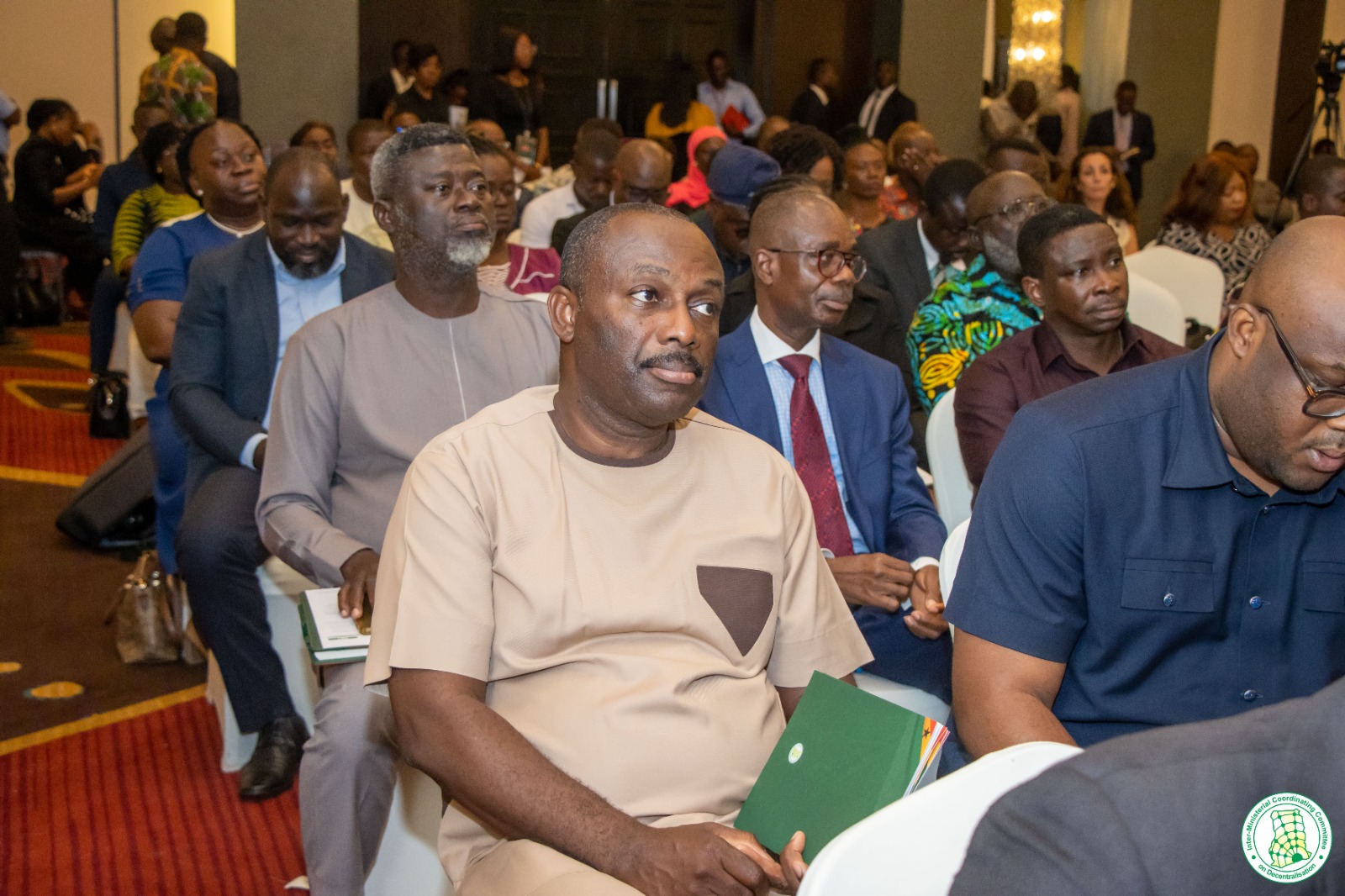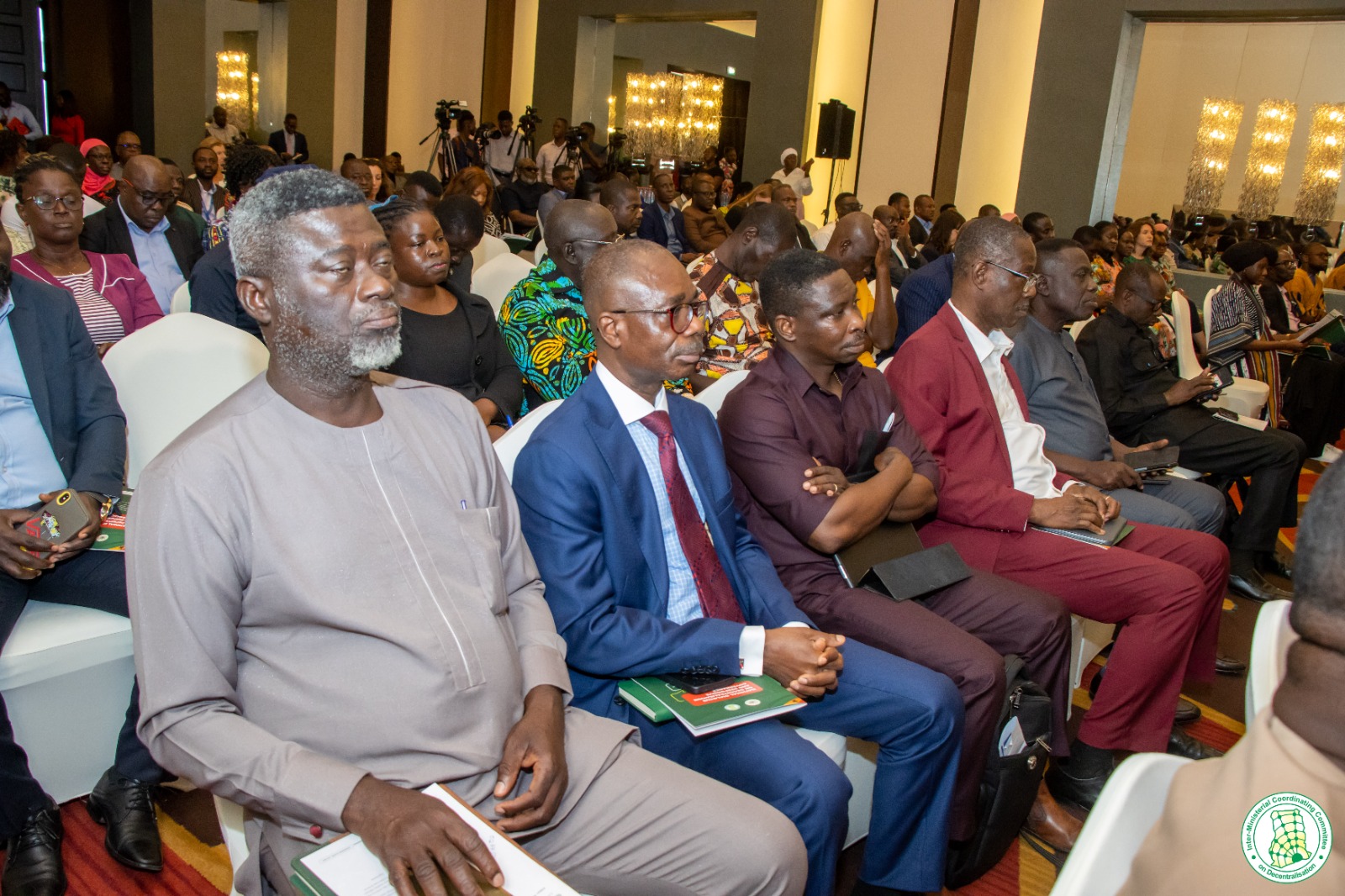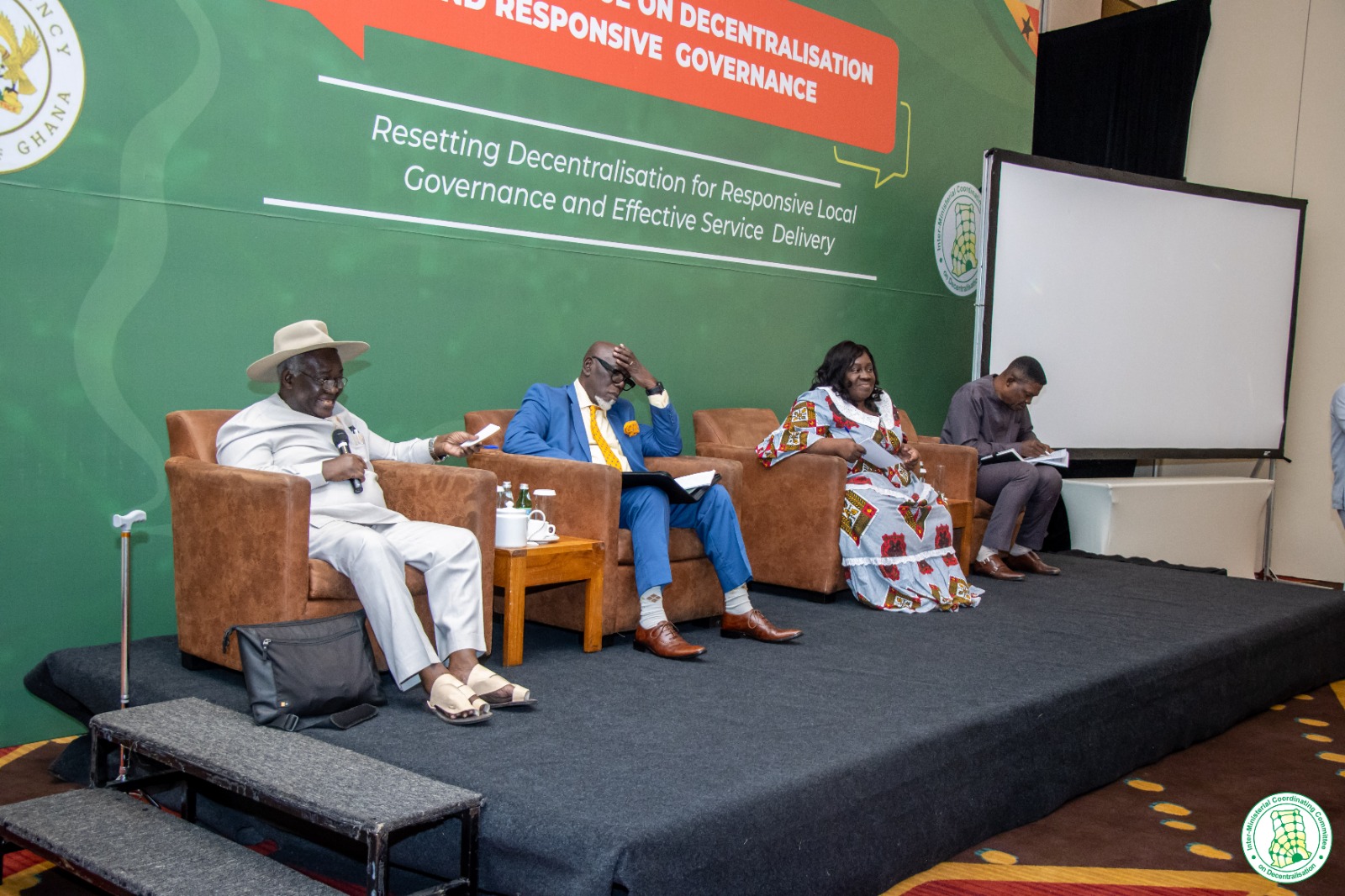The two-day National Dialogue on Decentralisation and Responsive Governance has ended in Accra with a strong national call to reset Ghana’s decentralisation framework for responsive local governance and effective service delivery.
Convened by the Inter-Ministerial Coordinating Committee on Decentralisation (IMCC) with support from key partners, the Dialogue brought together stakeholders including Ministers of State, Members of Parliament, Metropolitan, Municipal and District Chief Executives (MMDCEs), Heads of Departments, Civil Society Organisations, development partners, traditional authorities, academia, and the media. The Vice President of the Republic, Her Excellency Professor Naana Jane Opoku-Agyemang, officially inaugurated the Dialogue.
Participants acknowledged that nearly four decades after Ghana embarked on its decentralisation journey, the country stands at a defining moment that demands consolidation and reform. They stressed that decentralisation remains central to deepening democracy, empowering citizens, strengthening accountability, and improving the delivery of essential services.
The Dialogue recognised notable progress since 1988, including improved intergovernmental transfers and enhanced citizen engagement, but identified persistent challenges such as fiscal constraints, capacity gaps, and duplication of administrative roles. It emphasised the need for reforms that ensure coherence, sustainability, and inclusiveness in local governance.
At the end of deliberations, participants adopted several key resolutions — including a call for a new National Decentralisation Policy and Strategy (2026–2030) that secures sustainable financing for local governments, deepens political decentralisation through the election of MMDCEs, strengthens accountability, and institutionalises citizen participation and traditional authority roles in governance. The Dialogue further urged the development of robust monitoring mechanisms to track progress and ensure measurable service delivery outcomes.
In a communiqué signed by the Executive Secretary of the IMCC, Dr. Gameli Kewuribe Hoedoafi, participants reaffirmed the collective commitment of government, civil society, traditional leaders, development partners, and citizens to reset Ghana’s decentralisation agenda to meet the of changing needs of communities and achieve inclusive, responsive, and people-centred governance.
Source: Darling Maame Efua Cann
MLGCRA Public Relations Unit
.jpeg)


.jpeg)

